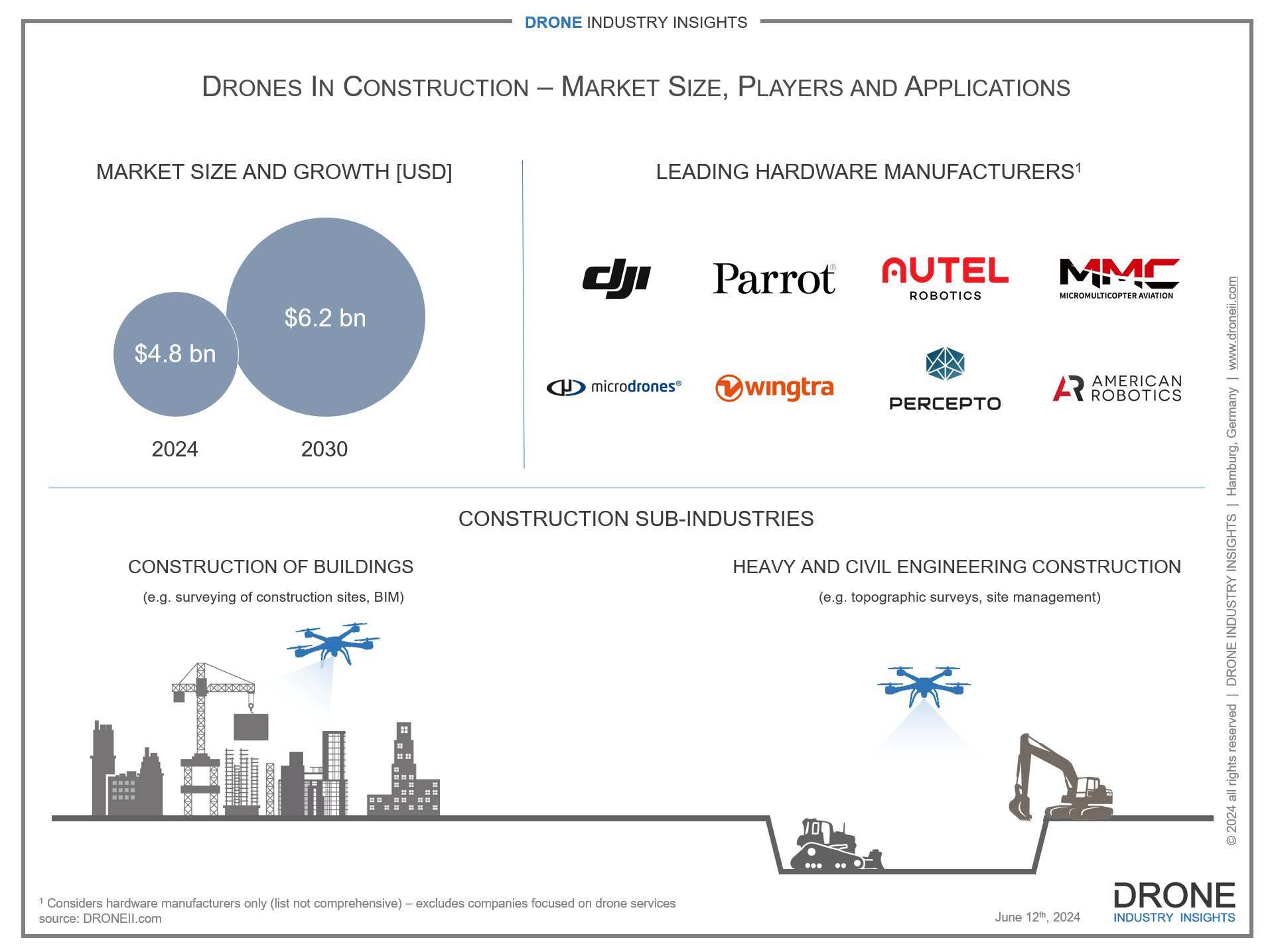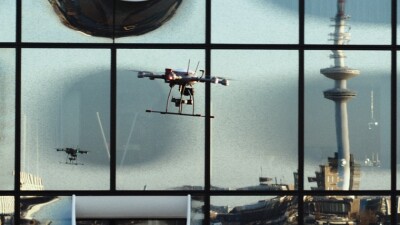The construction industry is undergoing significant change, driven by advancements in drone technology. This aerial innovation reshapes project planning, execution, and management, offering notable benefits in efficiency, safety, and cost-effectiveness.
Improving Project Planning and Surveying
Drones have improved project planning and surveying. Traditional methods are labor-intensive and time-consuming. Drones, with high-resolution cameras and sensors, capture site data quickly and accurately. This enables precise mapping and 3D modeling, allowing project managers to make informed decisions and reduce costly errors and delays.
Enhancing Site Monitoring and Inspection
Site monitoring and inspection are crucial in construction. Traditionally, these tasks required risky on-site visits by engineers and inspectors. Drones offer a safer, more efficient alternative. They navigate through complex construction sites, capturing high-definition images and videos from various angles. This allows thorough inspections without personnel accessing hazardous areas. Drones can perform regular inspections, providing continuous monitoring and ensuring issues are addressed promptly.
Improving Safety Standards
Safety is a paramount concern in the construction industry. Drones significantly enhance safety standards by reducing the need for workers to operate in dangerous conditions. For instance, drones inspect high-rise structures or difficult-to-reach areas, eliminating fall risks or accidents. They monitor ongoing construction activities, ensuring compliance with safety regulations and identifying potential hazards before they result in accidents. Frequent, detailed safety inspections lead to a safer working environment and can potentially save lives.
Boosting Efficiency and Productivity
Efficiency and productivity are critical drivers of profitability in construction projects. Drones contribute by streamlining various processes. They assist in the precise placement of materials, monitor work progress, and ensure construction adheres to the timeline. This real-time oversight helps project managers identify bottlenecks and optimize workflows, leading to faster project completion. Furthermore, drones can automate routine tasks, allowing workers to focus on more complex activities.
Cost-Effective Solutions
The cost implications of drone technology in construction are profound. While the initial investment in drone equipment and training can be significant, long-term savings are substantial. Drones reduce the need for expensive manual labor, lower the risk of costly project delays, and minimize rework due to errors. Additionally, the high-quality data provided by drones leads to better resource management and reduced material wastage. Drones offer a cost-effective solution that enhances the overall financial viability of construction projects.
Data-Driven Decision Making
One of the most significant advantages of drones is their ability to collect vast amounts of data. This data can be analyzed to gain insights into various aspects of the construction process, from site conditions to worker productivity. Advanced analytics and machine learning algorithms further enhance this data, providing predictive insights that help in proactive decision-making. For example, data from drones can forecast potential delays, identify areas for improvement, and optimize resource allocation. This data-driven approach leads to more informed decisions and better project outcomes.
Future Prospects
The future of drones in construction looks promising, with ongoing advancements in drone technology poised to unlock even greater potential. Innovations such as autonomous drones, advanced AI capabilities, and integration with other construction technologies like Building Information Modeling (BIM) are expected to further revolutionize the industry. These developments will enhance the capabilities of drones, making them an indispensable tool in modern construction practices.
















Comments